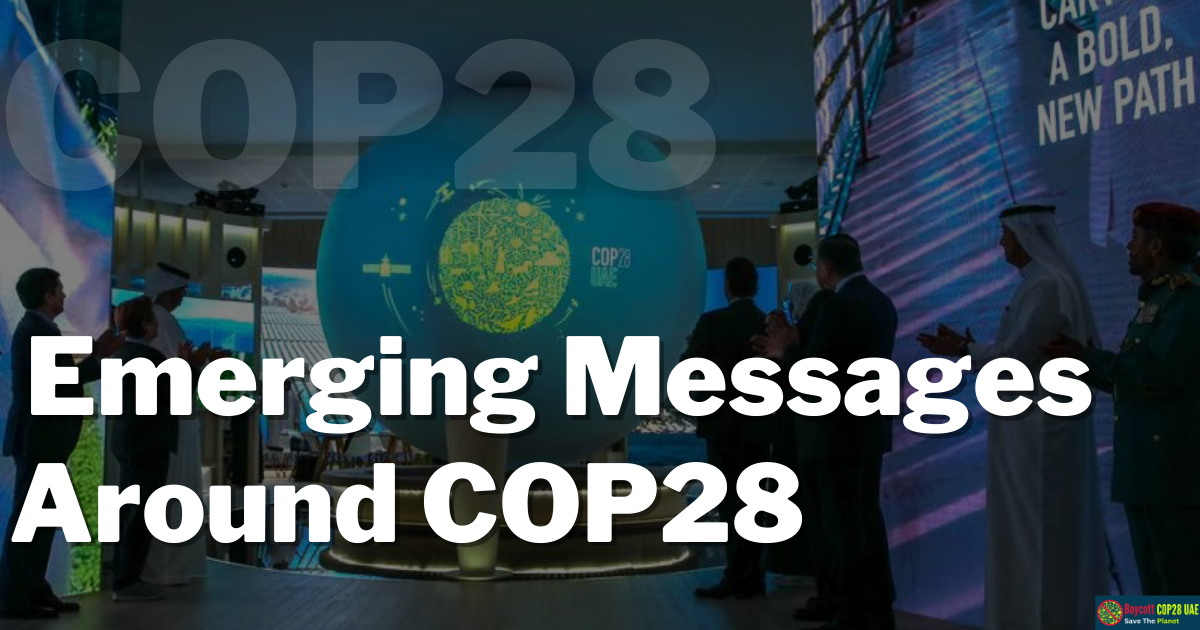As we approach COP28, a crucial global summit taking place in Dubai this December, the world is grappling with the urgent need to address the climate crisis. The severity of this issue is evident through the unprecedented heatwaves, droughts, and flooding that have ravaged our planet. With just half a year remaining until this pivotal gathering, the international community needs to identify and focus on the key priorities to tackle this complex challenge.
Amidst this backdrop, world leaders and the largest economies have adopted different strategies to combat inflation, stimulate economic growth, and embrace the advantages of a clean transition. President Biden recently introduced the Inflation Reduction Act, while the EU swiftly followed suit with the Net Zero Industry Act. Meanwhile, China persists in its investments towards cleaner technologies. Nevertheless, with a mere six months remaining, there is still a risk of sluggish progress.
In anticipation of COP28, it is crucial to highlight six emerging messages around cop28.
Six Emerging Messages Around COP28
In order to increase your knowledge about six emerging messages around COP28, please read the following section carefully.
- Phasing Out Fossil Fuels: The need to phase out fossil fuels remains paramount. Governments worldwide must accelerate the transition to renewable energy systems and infrastructure. While renewable energy investments reached parity with fossil fuel investments in 2022, government subsidies continue to favor fossil fuels. This approach harms people, economies, and the environment. COP27 fell short of consensus on this matter, but phasing out fossil fuels must remain on the table to foster the development of clean and sustainable energy solutions
- Decarbonizing High-Emission Sectors: Investment in technologies to decarbonize high-emission sectors like steel and concrete is crucial. By embracing renewable energy and clean hydrogen infrastructure, we can scale up the transition in heavy industries. Steel, pivotal in wind turbines, solar panels, electric cars, sustainable buildings, and low-carbon ships, presents a unique opportunity to drive the zero-carbon economy forward. Simultaneously tackling energy and steel transitions is essential for sustainable progress
- Protecting Global Food Systems: Food insecurity remains a pressing concern exacerbated by extreme weather events, conflicts, and the COVID-19 pandemic. The food system itself contributes significantly to climate change, accounting for one-third of global greenhouse gas emissions and consuming a large portion of energy, primarily derived from fossil fuels. To ensure equal access to nutritious food, we must address this issue while mitigating carbon emissions and reducing methane emissions from meat production
- Financing a Safer, Low-Carbon Future: Adequate climate finance is imperative to achieve global net-zero emissions and adapt to a changing climate. However, the commitment made by developed countries at COP15 to provide $1 billion per year by 2020 for developing nations has not been fulfilled. It is essential for institutions like the World Bank and regional banks to allocate funds effectively and utilize financial mechanisms to support climate change mitigation and adaptation. Additionally, subnational governments should play an active role in raising revenue, implementing green public procurement, and facilitating local-level public/private finance
- Connecting Climate and Biodiversity Crises: Climate change and biodiversity loss are interconnected challenges that demand simultaneous attention. The linkages between these crises are increasingly recognized, and solutions that support both are gaining prominence. Positive breakthroughs at the 2022 UN Biodiversity Conference highlighted the importance of addressing overexploitation, pollution, fragmentation, and unsustainable agricultural practices. Aligning financial flows with nature is crucial to support Sustainable Development Goals, reducing emissions, and fostering climate change adaptation
- Recognizing the Needs of All in the Climate Transition: As climate change impacts intensify, ensuring that those who have contributed the least to the problem do not suffer the most is crucial. The Paris Agreement emphasizes the importance of a just transition that considers the workforce and creates quality jobs. COP28 provides an opportunity to learn from best practices at regional levels, such as those implemented by California, Cross River State, and Wales. Efforts should be focused on integrating just transition considerations into mitigation and adaptation strategies to address inequity and inequality effectively
Conclusion: Six Emerging Messages Around COP28
The messages emerging at COP28 demand immediate action and accountability from all levels of government and businesses. Concrete steps must be taken to phase out fossil fuels, decarbonize high-emission sectors, protect global food systems, ensure climate finance, address climate-biodiversity linkages, and prioritize a just transition. Pledges alone are insufficient; tangible progress and accelerated action are necessary to limit global warming to 1.5 degrees Celsius and secure a sustainable future for our planet.






